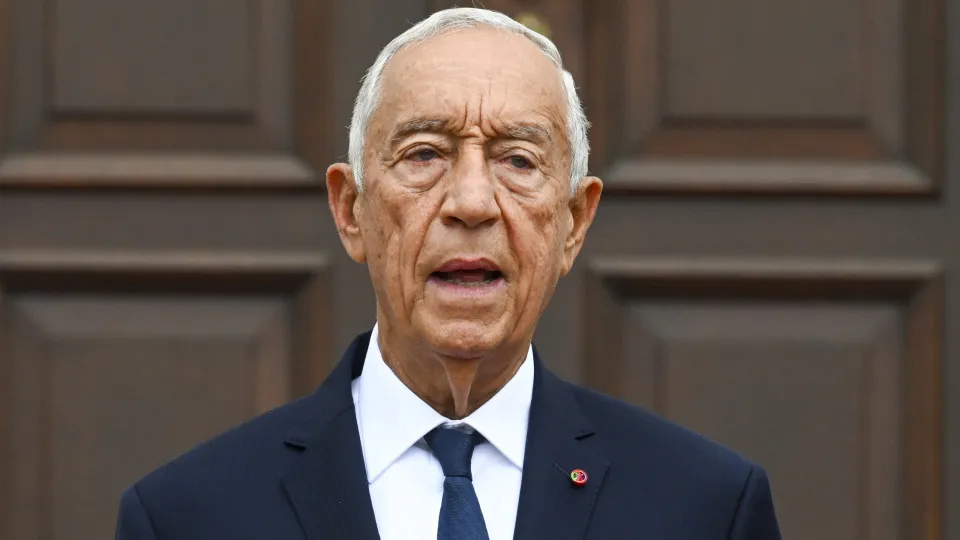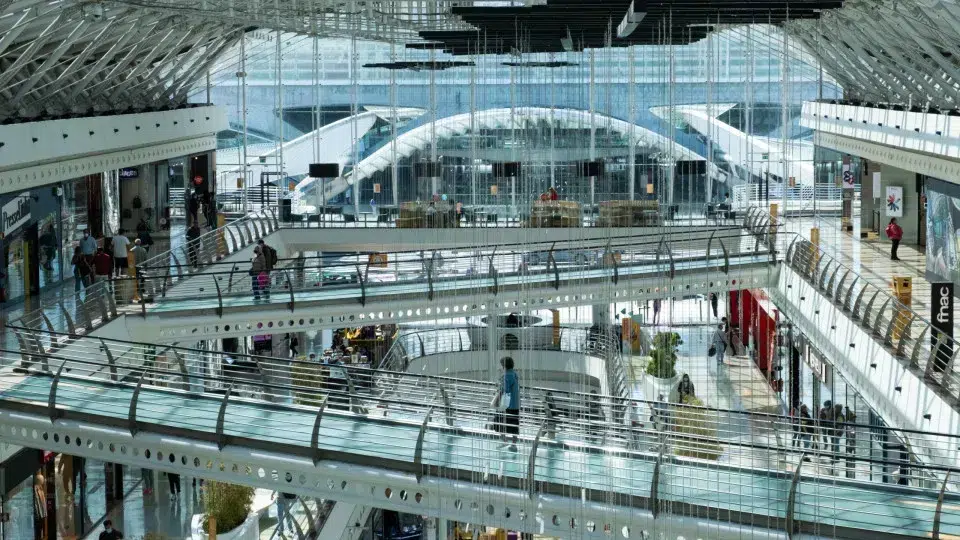
Rúben Pacheco Correia has become a familiar face among the Portuguese public, frequently appearing on various television programs to discuss topics including gastronomy. However, not everyone knows another of his great passions: Rabo de Peixe, the parish that has since become a town and is the place of his birth.
Correia’s latest book, his fifth and his second published by Contraponto, focuses on this iconic place, often subject to prejudice. “Rabo de Peixe – Toda a Verdade” narrates with journalistic precision the events of the so-called “hot summer” of 2021 on São Miguel island in the Azores.
“At one point in the book, Rúben challenges the reader to consider, “What if the story of Rabo de Peixe is even more convoluted than the one told by the Netflix series?” And it truly is, in some respects.
On June 6 of that year, Antonino Giuseppe Quinci, the Italian trafficker who instigated this narrative, changed the fate of many Rabo de Peixe residents when he anchored in the town after hiding more than 700 kg of cocaine along the São Miguel coast.
While enriching some, the drug also led to several deaths from overdoses and the destruction of entire families.
Much transpired related to this case, and some myths emerged. But Rúben uncovers the “truth of the facts,” alongside the “flesh and blood protagonists” of the story that inspired the hit Netflix series “Rabo de Peixe” by Augusto Fragata.
From Azorean rapper Sandro G to the PJ inspector leading the investigation, and those who aided Quinci’s prison escape and harbored him, Rúben takes readers on an unprecedented journey: meeting Quinci’s family in Sicily and Quinci himself in Brazil, where he remains imprisoned.
“Rabo de Peixe – Toda a Verdade,” prefaced by Luís Marques Mendes and with a postscript from Valter Hugo Mãe, hits bookstores today, May 8, and will soon lead to a three-episode documentary on TVI.
Yesterday, May 7, the book was presented in Lisbon by José Eduardo Moniz, attended by the President of the Regional Government of the Azores, José Manuel Bolieiro, former Prime Minister Pedro Passos Coelho, former Minister of Parliamentary Affairs Miguel Relvas, and other notable political, sports, and television figures.
The book will be presented in Rabo de Peixe, Azores, on Friday by Manuel Luís Goucha. In Vila Nova de Gaia, scheduled for May 16, Teresa Guilherme will host the presentation.
My dispute with Netflix is not just a matter of rights or control, but fundamentally about integrity and respect for truth.
“Rabo de Peixe – Toda a Verdade” launches on Thursday, May 8. This book follows the successful Netflix series named after the former parish, now town, where you were born. Why do you think the series tarnished Rabo de Peixe’s image?
The Netflix series, despite its success and spotlight on Rabo de Peixe, ultimately portrayed the community through stereotypes. As an author, I find literature offers a fuller, more human perspective. The dramatic and sensational focus of the television narrative overshadowed the beauty, strength, and dignity of the people. My book arises from the need to return the complexity and soul to Rabo de Peixe, telling its story with the depth it deserves—and above all, truthfully.
Do you believe the book finally does “justice” for Rabo de Peixe by telling “the whole truth” about the story centered on Antonino Quinci in 2001 in the Azores?
Justice, to me, is primarily a pursuit of truth, often forgotten or distorted by superficial narratives. Through this book, I aimed to bridge past and present, offering a more authentic reading without shortcuts or half-truths. My sincere hope is that this work helps Rabo de Peixe be seen in its entirety, its complexity, its humanity—a genuine justice that transcends facts and reaches the heart. I strived to relay the story as closely as possible to the testimonies received throughout the investigation.
You mentioned having a dispute with Netflix over a documentary both parties were preparing. What is the current status?
The matter remains unresolved. I feel it’s crucial to ensure the narrative of such a complex story is faithful and respectful. My dispute with Netflix is not merely about rights or control but primarily about integrity and respect for truth. I hope for deeper understanding or collaboration honoring Rabo de Peixe’s history more justly in the future.
Does this mean there will be a documentary based on “Rabo de Peixe – Toda a Verdade”?
Indeed, plans are underway for a documentary aiming to transcend the written word by capturing the essence of Rabo de Peixe through images, testimonials, and a visual narrative that complements my writing. We are still in the planning phase, but I want it to honor the story’s complexity, align with the book, and allow the audience to feel the community’s spirit and be intrigued by a truth that’s as or more compelling than fiction.
While learning about Antonino Quinci and his family in Italy, I encountered a dark realm rooted in drug trafficking and linked to the Sicilian mafia.
Without revealing too much about the book but noting you spoke with Antonino Quinci, what did you feel being before this man, knowing he destroyed many families and caused several deaths in the Azores?
It was a deeply impactful experience. Being in the presence of someone who played a significant role in such profound pain and loss evoked a complex mix of emotions challenging to articulate. As an interviewer, in conversations with Antonino and others, I tried to listen ethically and with understanding while maintaining my mission to expose and reveal. Meeting Antonino was fundamentally about courage, empathy, and honesty in confronting a harsh story needing to be told. Having grown up hearing about the Italian as a nearly legendary figure, meeting him brought the story to life, giving face and identity to a man who has always attempted to escape his own identity.
Your book reveals—previously unknown—that Antonino not only escaped Ponta Delgada Prison but managed to flee other detentions and repeatedly had his sentences reduced. Do you think he is somehow protected?
This is one of the more unsettling questions my book seeks to explore. Antonino Quinci’s multiple prison escapes and successive sentence reductions suggest underlying factors beyond mere mistakes or isolated incidents. Having investigated the truth behind complex stories, I can’t help but question if he’s been safeguarded by hidden interests, networks beyond the judiciary, or if justice itself continues to fail.
In addition to interviewing Antonino Quinci, you also met with several of his family members connected to drug trafficking in Italy. Aren’t you afraid of the Sicilian mafia?
This journey led me into a reality beyond what one might imagine. While learning about Antonino and his family in Italy, I encountered a dark realm rooted in drug trafficking and linked to the Sicilian mafia. There’s an inherent unease and vulnerability when confronting such violence-laden stories. Yet, I viewed confronting these stories with courage as an ethical mission: giving voice to the truth, no matter how uncomfortable. I hope by exposing these realities I might contribute to a deeper reflection on the need for justice and societal courage to tackle obscure interests. It’s not a eulogy to crime but a warning to society.
Have Antonino Quinci and his family read the book? What do you think they will make of it?
Not yet. They were quite collaborative with me throughout the process. I am confident the work respects all the testimonies gathered faithfully, and I believe they won’t feel let down.
Are there plans to speak with them again? To tell new stories about the family?
I believe a story never truly ends. There’s always room to rewrite chapters, unveil new layers, or narrate other, previously hidden aspects. Truth is by nature not finite; it’s ever-evolving and open to new revelations, especially involving such tumultuous and intricate lives as those of Antonino and his family. I cannot ensure that this book is the final chapter. There may be room to continue this narrative. For truth-seeking is an endless journey.
Related: What’s in store on Netflix for May? Here’s everything you can watch.




